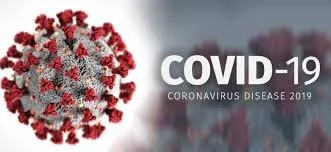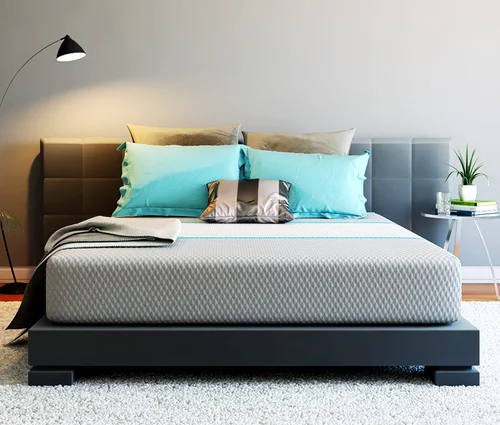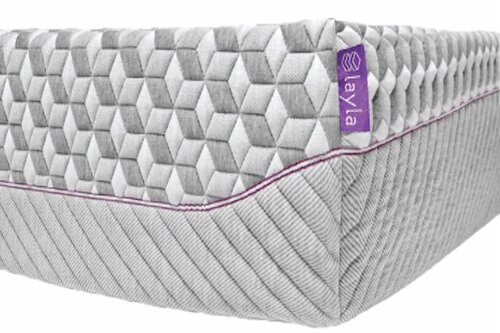Copper Infused Mattresses Have Naturally Antimicrobial Properties Which May Be Safer And Healthier
Incredibly, there are mattress options that include components that are proven to be effective in reducing and maintaining virus and bacteria free environments in your bedroom. The Coronavirus threat is certainly looming over all Americans, and much is unknown about how long the virus can remain on our bodies, clothing, and other contact surfaces.
Copper is a natural anti-bacterial and anti-viral element in its pure form. In fact, copper is so highly anti-viral that it is being used as the primary contact surface in many new and re-engineered hospital environments.
It never wears out, and copper continues to kill bacterial and viral organisms for the duration of the fixtures life. A report by the Washington Post details the anti-microbial qualities of elemental copper.

We offer two mattress options that we recommend which incorporate infused copper in the components of the mattress themselves. To learn more and to visit our retailer partners, Hyphen Mattress and Layla Mattress, scroll below for more information.
Both of these mattress options may offer anti-viral qualities that might reduce viral load in your environment.
We recommend two mattresses that are designed to offer anti-bacterial and anti-viral qualities, built into the ingredients of the mattress. Disclaimer: we are not suggesting that either The Hyphen Mattress or The Layla Mattress will prevent transmission of the coronavirus or treatment of symptoms for the disease.
Elemental copper has been shown to be effective against viruses and bacterial organisms, however, and may be a useful part of an overall regimen to maintain a sanitary home and bedroom environment.
The Hyphen Mattress

The Layla Mattress
The Hyphen Mattress features an anti-viral and anti-bacterial copper infused outer covering which sleeps cool and is hypoallergenic.
It features three layers of technical foam, including a memory foam like top layer, a buoyant support later, and a firmer substrate layer that lifts and supports.
Want to learn more? Check it out here. To achieve maximum benefit, we advise sleeping skin to mattress on this if you can. Save $190 off of the Hyphen mattress for limited time.
The Layla Mattress offers a multi-layered foam mattress which is very high tech. Though the outer encasement does not contain copper, a copper infused layer of high density foam is situated in the middle of this bed.
This bed is geared for hot sleepers, and relies on the copper layer being inside to keep viruses and bacteria away form the interior of the mattress.
Click here to order or to check out their site. $150 off the mattress price and two free pillows.
Here are some basic facts you should know about the Coronavirus, or COVID-19, that you should be aware of. First and foremost:
Diseases can make anyone sick regardless of their race or ethnicity.
People of Asian descent, including Chinese Americans, are not more likely to get COVID-19 than any other American. Many American businesses owned by Asian Americans have been hurt by mass hysteria and complete misinformation about the Coronavirus. Help eliminate the element of fear by letting people know that being of Asian descent does not increase the chance of getting or spreading COVID-19.
Some people who have traveled to places where many people have gotten sick with COVID-19 may be monitored by health officials to protect their health and the health of other people in the community.
For up-to-date information, visit CDC’s coronavirus disease situation summary page. Be aware of the symptoms of the coronavirus disease:
Fever
Cough
Shortness of breath
Seek medical advice if you develop symptoms, or have been in close contact with a person known to have COVID-19 or live in or have recently traveled from an area with ongoing spread of COVID-19. Call ahead before you go to a doctor’s office or emergency room. Tell them about your recent travel and your symptoms.
There are simple things you can do to help keep yourself and others healthy, and they’re super effective.
Wash your hands often with soap and water for at least 20 seconds, especially after blowing your nose, coughing, or sneezing; going to the bathroom; and before eating or preparing food.
Avoid touching your eyes, nose, and mouth with unwashed hands.
Stay home when you are sick.
Cover your cough or sneeze with a tissue, then throw the tissue in the trash.
Fantasilandia in Chile, one of Latin America’s largest theme parks, has replaced its most frequently touched surfaces with copper to actively reduce the spread of germs and protect the health of its visitors. Why is this? Because copper and its alloys exhibit impressive antibacterial, antiviral and anti-fungal properties.
Copper has been exploited for health purposes since ancient times. Egyptian and Babylonian soldiers would sharpen their bronze swords (an alloy of copper and tin) after a battle, and place the filings in their wounds to reduce infection and speed healing.
Medicinal uses of copper go back to ancient Egypt. Copper was also used to cure medical problems in ancient China and India and is an important component of Ayurveda medicine today. Hippocrates in Greece and the Aztecs used copper oxide and copper carbonate, combined with other chemicals such as sodium carbonate, olive paste and honey, to treat skin infections.
Copper workers in Paris were protected from several cholera epidemics and French wineries even applied copper sulphate and slaked lime, called Bordeaux mixture, to vines to prevent fungal attack.Copper is amazingBut only now does our research describe how copper and its alloys exhibit these impressive properties and the processes involved.
The process involves the release of copper ions (electrically charged particles) when microbes, transferred by touching, sneezing or vomiting, land on the copper surface. The ions prevent cell respiration, punch holes in the bacterial cell membrane or disrupt the viral coat, and destroy the DNA and RNA inside.
This latter property is important as it means that no mutation can occur – preventing the microbe from developing resistance to copper. Global concern is growing over antimicrobial resistance and the risk of death that it presents from common infections in even minor operations.
Therefore, it is fortunate that copper alloys kill superbugs, including MRSA and those from the notorious ESKAPE group of pathogens – the leading cause of hospital-acquired infections.
Transfer of antibiotic resistance genes from resistant bacteria to other bacteria is also stopped because the genes themselves are destroyed. These destructive properties are enhanced by the bacteria since they release small amounts of hydrogen peroxide.
This reacts with the copper ions to form ferociously reactive oxygen, which also attacks and damages the microbes in multiple areas.All of these laboratory studies have been translated into the healthcare environment.
Studies worldwide have shown that, with routine cleaning, when copper alloy is used on regularly touched surfaces in busy wards and intensive care units, there is up to a 90% reduction in the numbers of live bacteria on their surfaces.
This includes bed rails, chair arms, call buttons, over-bed tables, IV poles, taps and door handles.Studies in three hospital intensive care units in the US also showed a remarkable 58% reduction in infection rates. So, unsurprisingly, copper alloy touch surfaces are now being deployed worldwide in airports, trains, train stations, busses, restaurant kitchens and gyms.
The new Francis Crick Institute in London is kitted out in copper alloys, supporting its foresight and vision as a world-leading research centre for the public good.Some common viruses have no vaccine available, such as the winter vomiting virus (norovirus) – the scourge of cruise ships.
Others, such as influenza, mutate so rapidly that it is difficult for vaccines to keep up – and they need to be reformulated annually. Copper surfaces however wipe them out regardless of year-on-year changes in the microbes.
Why isn’t it widespread in hospitals? Hand gel is not as effective as copper. So if copper is so great, you may be wondering, why don’t hospitals have more copper fittings and fixtures? Well, while some hospitals are installing copper fittings, many others are still not aware of its properties.
When doctors are asked to name an antimicrobial metal used in healthcare, the most common reply is silver – but little do they know that silver does not work as an antimicrobial surface when dry – moisture needs to be present and so silver would have an antibacterial effect, like copper does, on hand rails and surfaces which have frequent hand contact.
Cost could also be a factor. Hospitals may perceive hand-gel dispensers as cheaper options, despite the fact that these gels do not all kill all microbes – including the norovirus. Yet an independent study by University of York’s Health Economics Consortium has shown that, taking the reduced costs of shorter patient stay and treatment into consideration, the payback time for installing copper fittings is only two months.
Making and installing copper fittings is no more expensive than using materials such as stainless steel which, ironically, is considered easier to keep clean due to its bright surface. However, we know that these are covered in microscopic indentations and scratches from regular wear and tear, leaving valleys for superbugs and viruses to reside in and escape cleaning procedures.
Cleaning happens at best once a day, while copper works 24/7 – so it is surely an important component in the fight to keep our environment clean. The importance of installing copper fittings has been recognized in France where various hospitals are now installing copper.
Finally, at least some nations of the world are waking up to this simple approach to control infection, let’s hope others are quick to follow suit.
